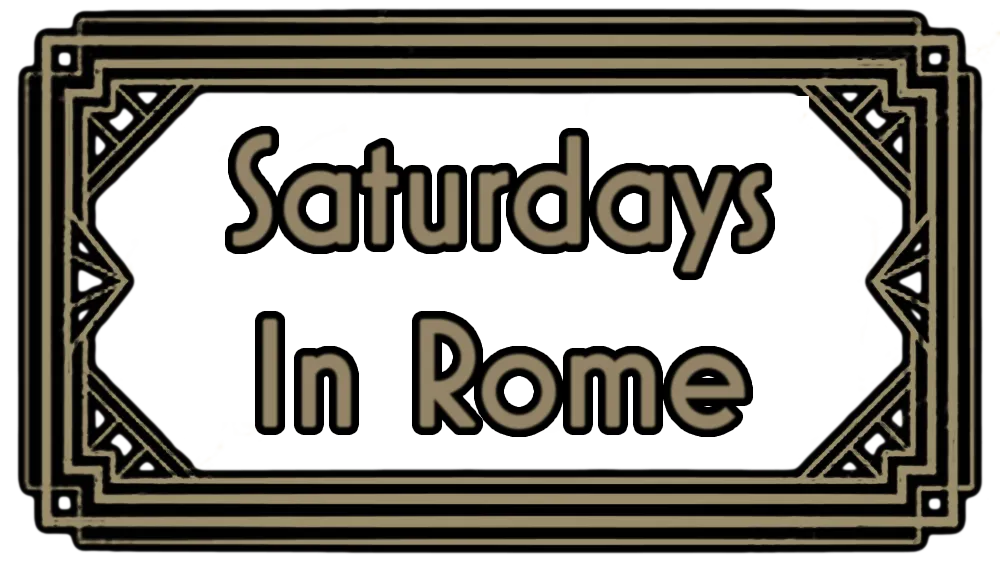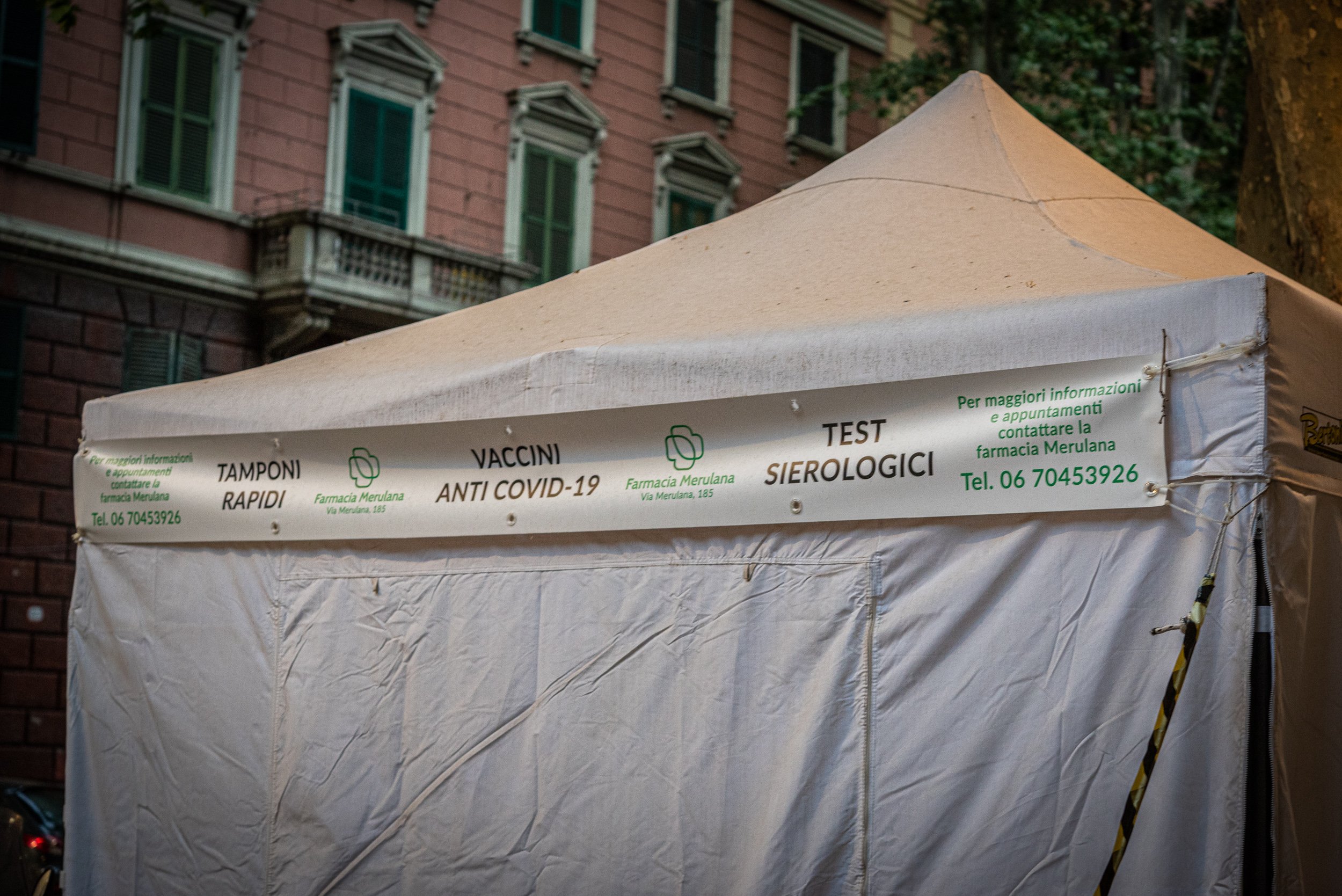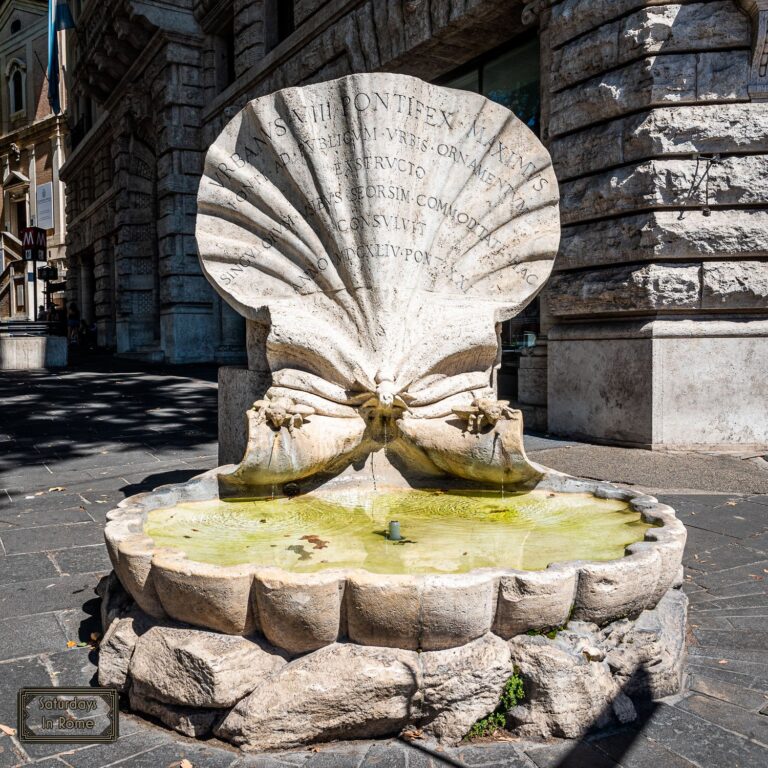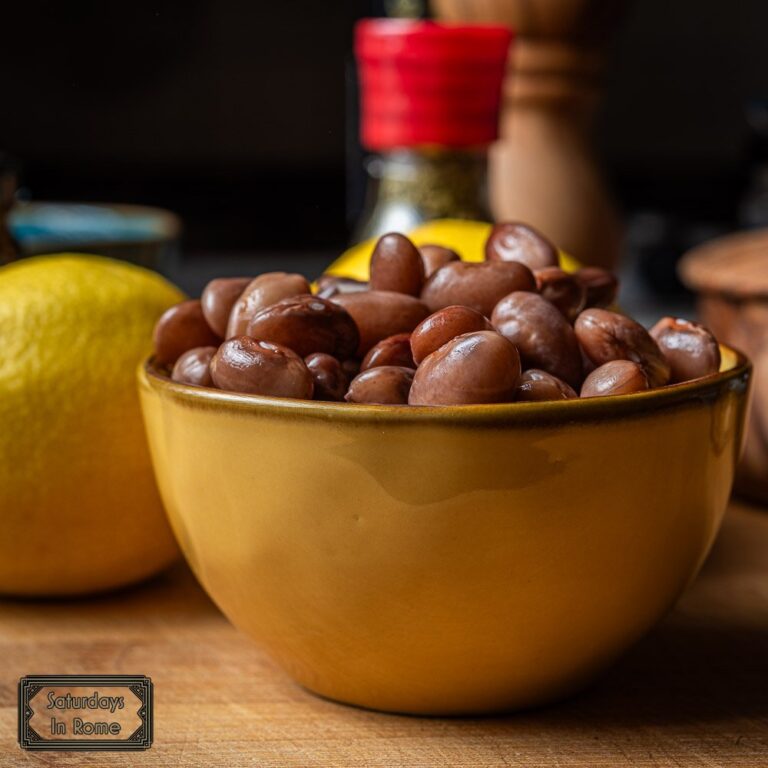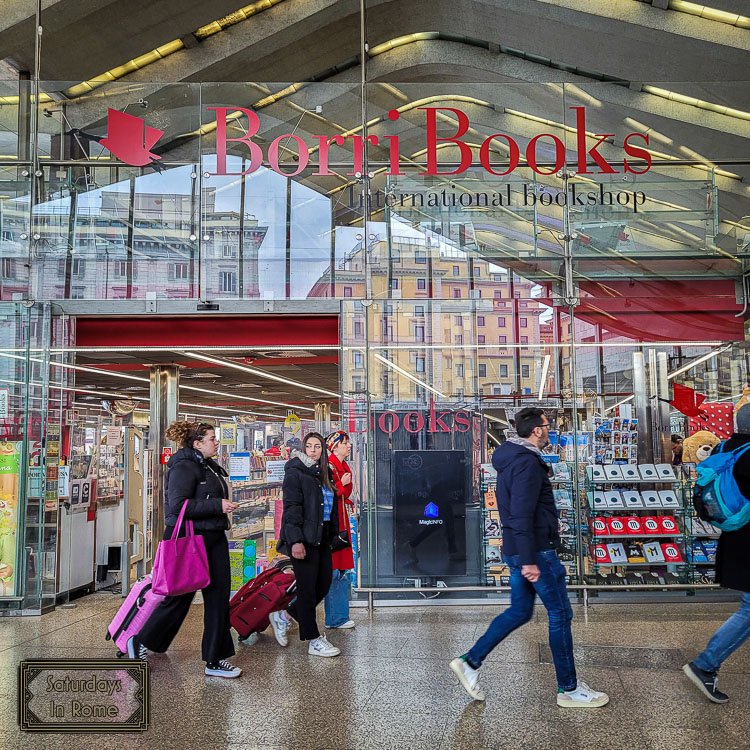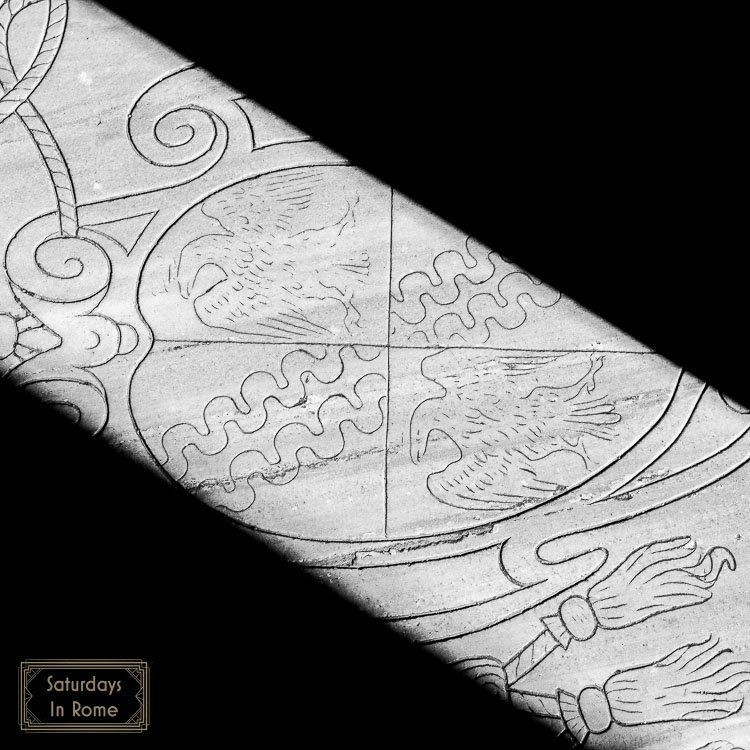Using Pharmacies In Italy Is Simple With This Guide
Using Pharmacies in Italy is a major part of everyday life and this guide shows some differences from the US that may be helpful to you before you need it.
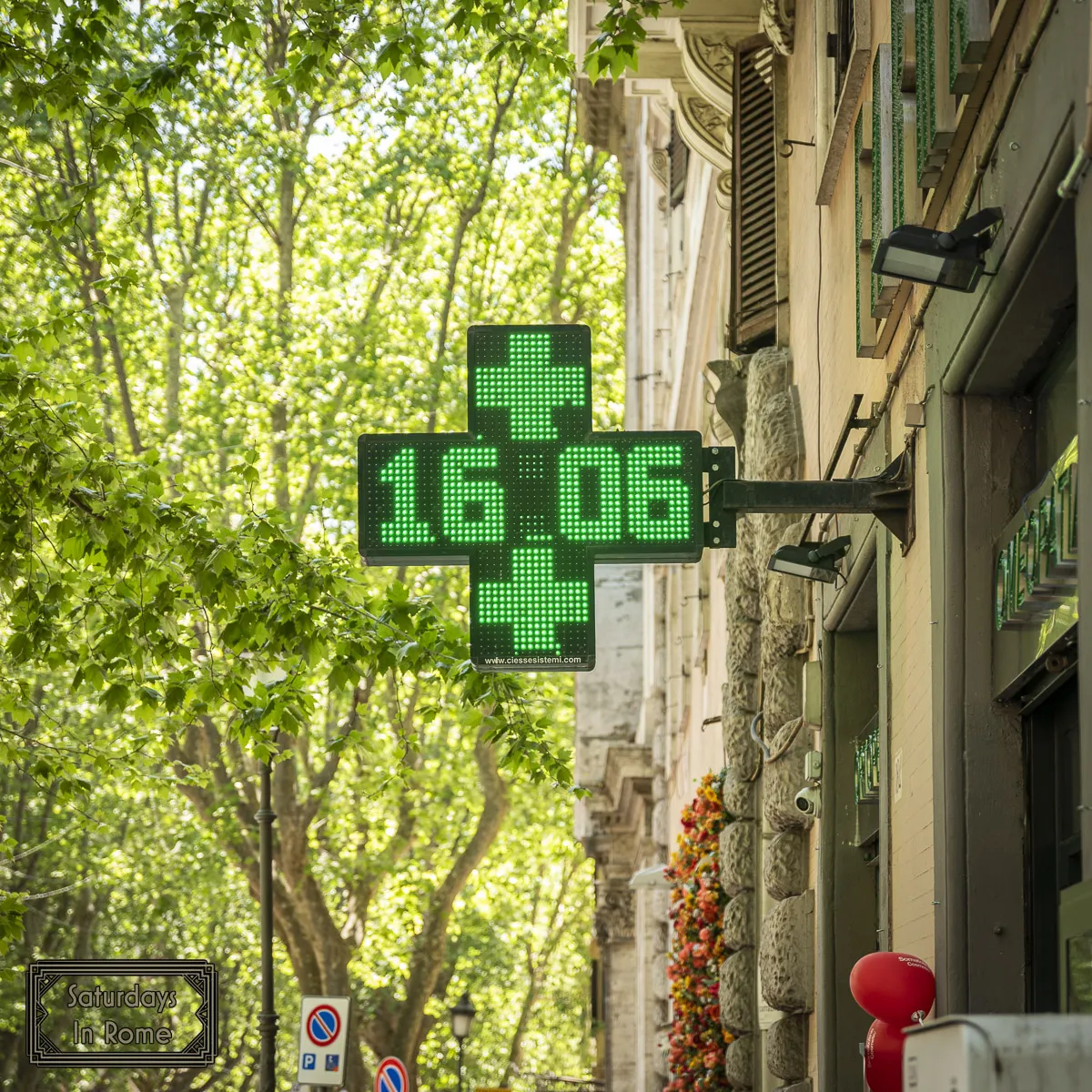
When you first start feeling like you have a cold, a strong headache or an upset stomach, instead of trying to find a doctor, your first stop would be at the very convenient local Farmacia. There aren’t the huge chain pharmacies in Italy, like Walgreens or CVS, but you really can’t miss the ubiquitous neon green plus-signs. Since we live in the center of Rome (Centro Storico) I’m not certain if our experiences are that same as those in other cities or the suburbs, but there are pharmacies everywhere. On a street near us, there is one two blocks down from another.
Parapharmacies In Italy
One variation on this theme are the Parapharmacies (Parafarmacia) and they deal with only the Over the Counter (OTC) health products, or in other words, for the purchase of which there is no need for a medical prescription. The difference between pharmacy and parapharmacy refers specifically to the authorization to market pharmaceuticals for which a medical prescription is required. Interestingly, both pharmacies and parapharmacies are required to have a pharmacist present at any time.
Need Help Planning?
- Cheap Flights: Find The Most Affordable Flights.
- Accommodations: From 1 to 5 Stars And More.
- Car Rentals: Affordable Travel Across Italy.
- Sightseeing Tours: Explore Some Amazing Tours.
- Buying An eSIM: Stay Connected In Italy.
This post includes affiliate links.
Speak To An Italian Pharmacist
With all your traveling, drinking more wine than usual, walking more steps than is your norm and the headaches from jet lag, you might at some point need to get some painkillers for your new aches and pains. It is likely that you’ll need to speak to the pharmacist to get whatever you need for your pains, even if it’s technically “over the counter.”
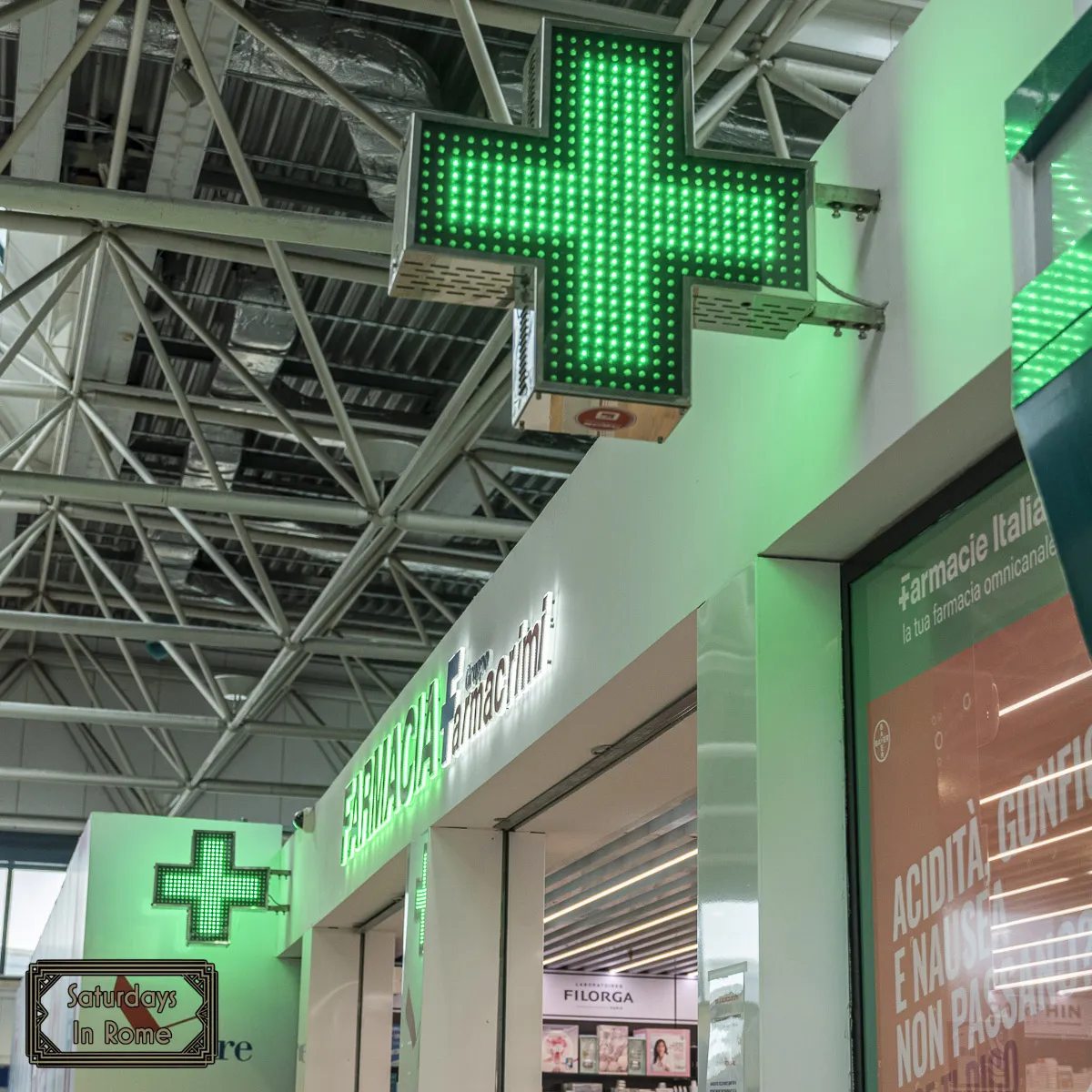
Painkillers you have used in the US aren’t on open shelves, although a prescription isn’t necessary for them. You will need to ask for them from the Pharmacist and they don’t necessarily speak English, so you might want to prepare a few Italian words and phrases. The painkillers do go by different names, like:
- Ibuprofen and Advil in Italy: Moment, Nurofen, and Brufen
- Tylenol in Italy (Acetaminophen): Paracetamol, Tachipirina or Efferalgan
- Aleve in Italy (Naproxen): Naprosyn, Momendol, and Naproxene
- Aspirin in Italy: “Aspirina”
There is a range of other non-prescription medication available for:
- Stomach Pain – if it seems serious, try Imodium and Maalox, but if you just over-ate, try the Brioschi.
- Allergies or a Cold – You can ask for Zyrtec or Actifed
- Cough – The Italian word for cough is Tosse, so look for something with Tosse or Tusse in the name, like Tusseval and for a sore throat try Benegol. You may want to be familiar with one phrase to minimize the risk of embarrassment and that is Tosse Grassa. This literally translates to Fat Cough but is more like a “wet” cough that is characterized by the production of phlegm, as opposed to a dry cough. The Pharmacist isn’t calling YOU fat, just your cough.
- Mosquito Bites – This is pretty likely, depending on where you are staying and how good the screens are, if they exist. You can try a hydrocortisone cream like Locoidon.
Pharmacies In Italy Are Open 24-Hours
Pharmacies aren’t independent businesses, like in the US, so there seems to be a good coordination between them regarding operating hours. There is a sign listed on our local Farmacia that shows the hours of operation of the neighboring Pharmacies and indicating which one is open 24-hours, in case of an emergency.
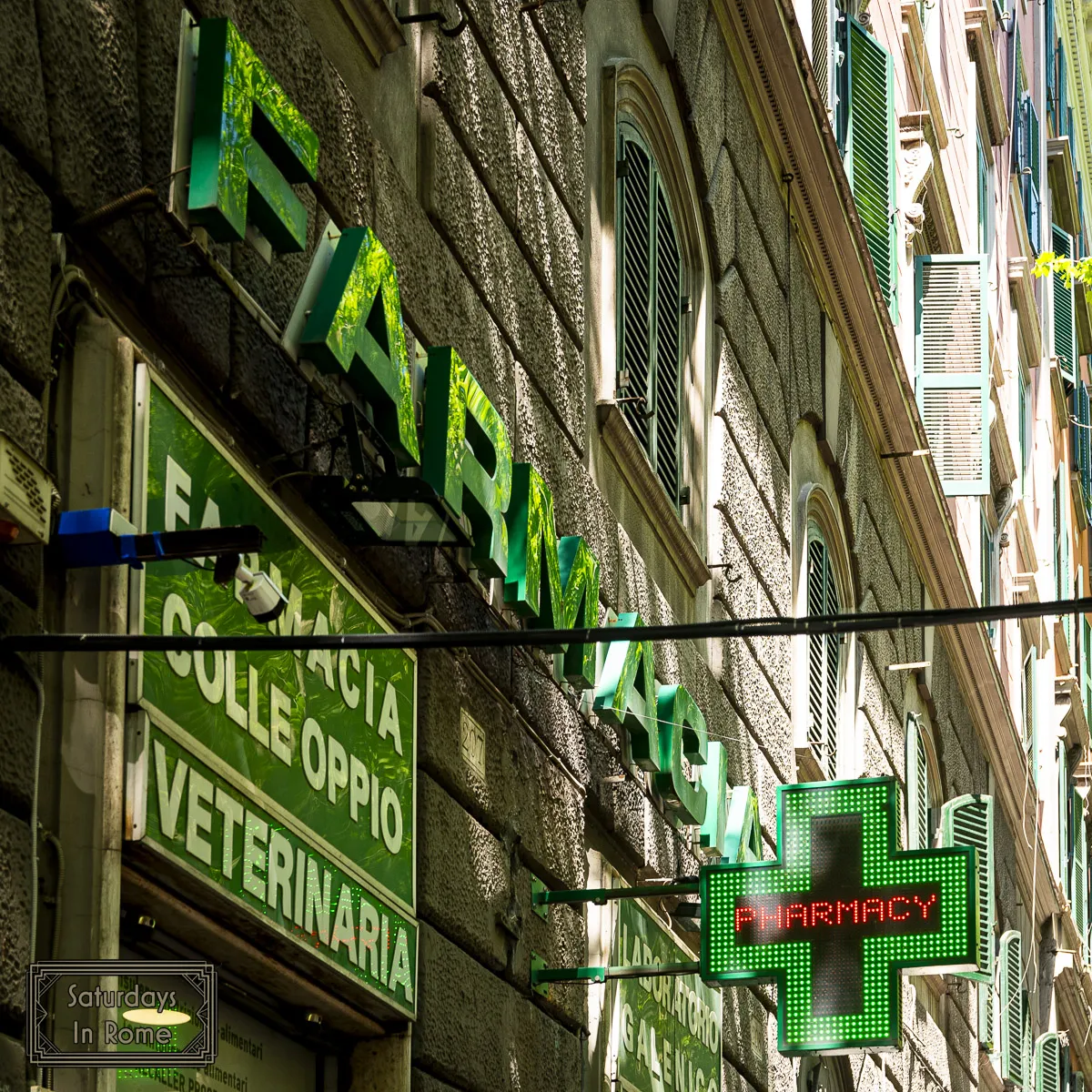
How Do I Get Prescription Drugs In Italy?
It is possible that if you planned poorly or your bag got stolen you might need to get a prescription filled while you are in Italy. While some prescriptions might not exist in Italy (I was told by three different doctors that one of mine wasn’t used in Italy, but that turned out to be wrong) it is very likely that they have whatever you need available here as well.
In order to refill an existing prescription, for best results you should do the following:
- Carry the medication in its original packaging. Don’t bring it in a pill box, even if it will save space.
- Minimize the risk of getting it lost or stolen by carrying your prescriptions in your carry-on bag.
- Have a note from your doctor describing your condition.
- If it isn’t listed on the bottle, make sure you know the generic name for your medication. The marketing names you are familiar with can be different from country to country.
Testing and Vaccine Tents for COVID
If you are out of medicine, you don’t have your original prescription or you can’t find a pharmacist willing to give you a refill, you will need to go to the emergency room (Pronto Soccorso). A doctor there will be able to write you a prescription, but you will need to remember to bring your passport with you.
Online Pharmacies In Italy
In the European Union (EU), it is possible to buy medicines online. Each patient should only buy medicines from online retailers registered with the national health system of their country to reduce the risk of buying sub-standard or falsified medicines.
There is a long list of Pharmacies approved to operate in Italy, and in Lazio (the region of Rome) I found these two: FamilyFarma and FarmaciaMazziniRoma and I’ve seen that typically you can get your order delivered to your house or you can pick it up in their locations if you would prefer.
Do They Speak English At Italian Pharmacies?
It is possible that you will find a Pharmacy or an individual Pharmacist that speaks English, but this is definitely not a certainty. Like most things in Italy, it greatly depends on where you are. For example, there is a Farmacia very close to Piazza Navona where I was told I could go and talk to a Pharmacist in English about my American prescriptions, presumably to get them re-filled. However, if you are away from the tourists or in a smaller town, don’t count on speaking English. Follow the recommendations above for your best chances for success.
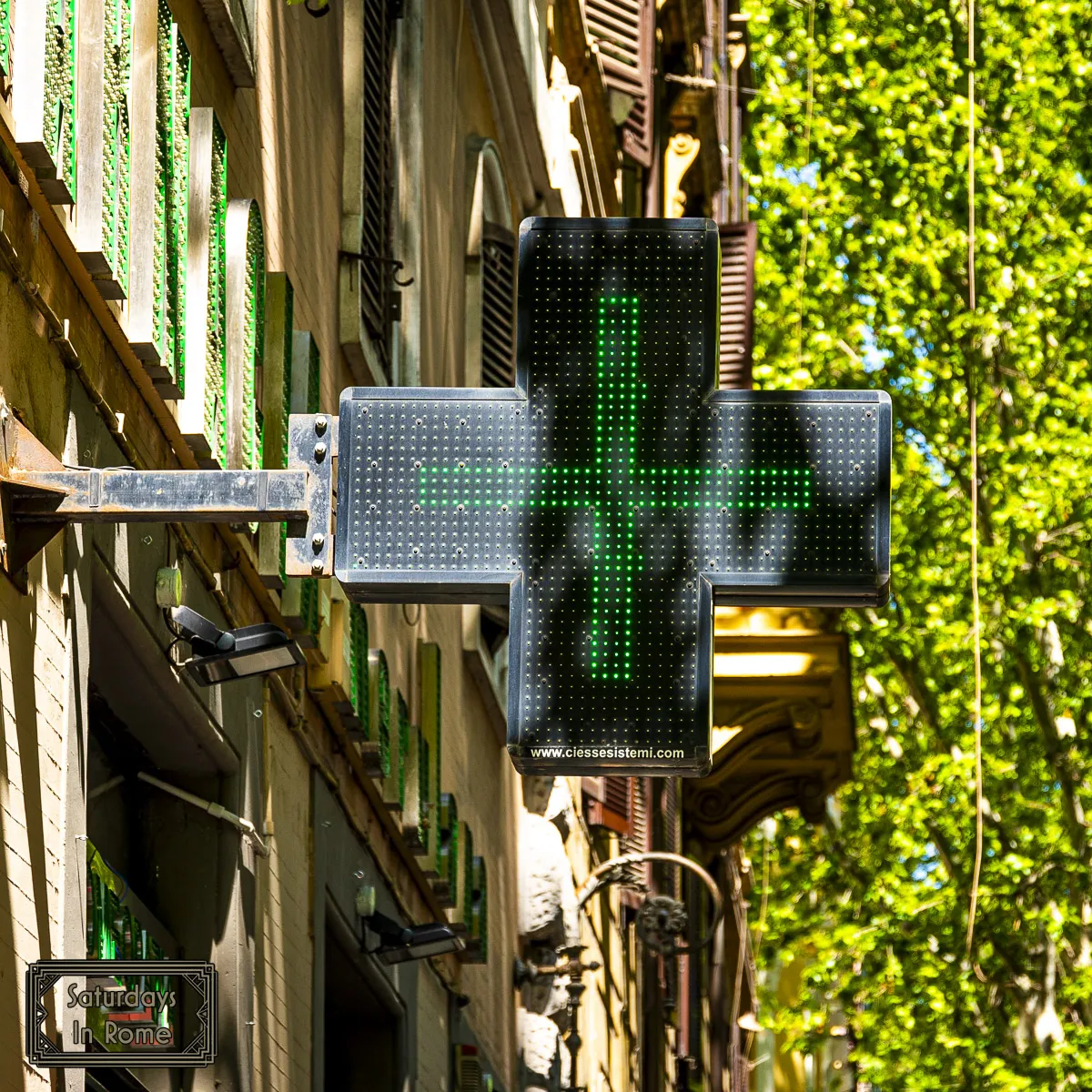
Navigating Pharmacies In Italy
As I had mentioned previously, some Italian pharmacists speak English, but it is very dependent on the specific location and if you are near a tourist site. If you are planning to stay in Italy for a while, or if you plan to move here, you might want a few handy Italian phrases and the names of some common medication. This will give you some confidence when you want to make a purchase in pharmacies in Italy.
If you would like to learn more about Italian healthcare, these are some other articles that you might find interesting as well:
- Health And Wellness In Rome Made Simple
- Finding A Dentist In Rome, Italy Shouldn’t Be Stressful.
- These Self-Care Tips For Rome Will Make Travel Amazing.
- Enjoying Early Morning Rome Can Help With Your Insomnia.
- The Best Spots For Running In Rome Are Easy To Find.
- Rome’s Train Station Has Pharmacies To Keep You Healthy.
- Pickleball In Italy Is Waiting For You And Here Is Where.
- Living La Dolce Vita Is Easier Than You Might Think!
- Why Is The Life Expectancy In Italy Higher Than In The US?
- How To Get A Tessera Sanitaria In Italy – Requirements Guide.
- My Experience With Italian Healthcare Has Been Eye-opening.
- The North Vs South Italy Cultural Differences Are Important.
